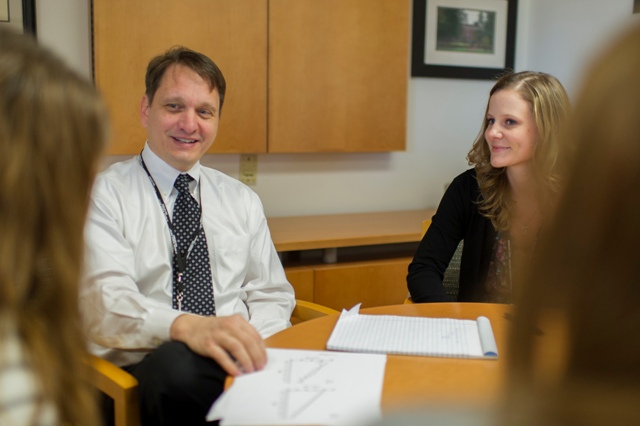Careers and Training
The Neurobehavioral Research Laboratory and Clinic provides career development and training for students at all levels. Many of our former trainee's have gone on to successful post-secondary education programs and continue their careers in human health research or healthcare.
The NRLC provides a fertile ground for career development because of the diversity of patient populations and research tools students are exposed to and because of our strong interest in mentorship. The following is a description of opportunities that are available.
Research Career Opportunities

The NRLC is a great place to start a research career. As a research assistant at the NRLC, you obtain hands on experience in conducting human psychophysiological experiments. Many of our research assistants use their time at the NRLC as a launching point for further education in biomedical fields. Some of our past research assistants have gone on to graduate school in Neuropsychology, Physician Assistant studies, and Medical School.
Postdoctoral Fellowship - Substance Use Research
We are in search of motivated individuals with an exemplary research background to join a team of researchers conducting multi-disciplinary research in the area of substance abuse. We are conducting a diverse array of translational substance abuse research projects ranging from adolescent longitudinal development of substance use involvement to adult alcohol treatment outcome research in a criminal justice setting. Our approach to postdoctoral training typically involves interaction with a multidisciplinary team of investigators, including Drs. Donald Dougherty, Nathalie Hill-Kapturczak, Charles Mathias, and Stacy Ryan. Depending on the applicant's career goals, areas of training include: behavioral pharmacology, clinical intervention, biochemistry, personality, and statistics. Additionally, this training environment is strengthened through collaboration our local NIDA T32 program substance abuse research (PI: Dr. Charles France). The fellow will be provided active research mentoring and be engaged in manuscript and grant writing. Responsibilities include study coordination and supervision of study personnel, participant recruitment, screening, psychological testing, statistical analyses, and manuscript/grant preparation. Applicants must have completed a Ph.D. in in a relevant discipline. Multiple-year appointments are available and dependent on satisfactory performance. Candidates should send their curriculum vitae, a letter outlining interests and career goals, and representative publication reprints. Materials can be sent by email or by mail to:
Donald M. Dougherty, Department of Psychiatry, MC 7793, The University of Texas Health Science Center at San Antonio, 7703 Floyd Curl Drive, San Antonio, TX 78229-3900.
All postdoctoral appointments are designated as security sensitive positions.
The University of Texas Health Science Center at San Antonio is an Equal Employment Opportunity/Affirmative Action Employer including protected veterans and persons with disabilities.
Volunteer Positions
For a listing of volunteer opportunities, please contact the NRLC.
Student Opportunities

The National Institute on Drug Abuse (NIDA) invites high school and undergraduate students to submit applications for the 2016 Summer Research Program. Under this program students underrepresented in the biomedical, social, clinical and behavioral sciences are paired with NIDA funded scientists at research institutions across the United States for 8-10 weeks during the summer to work in the field of substance abuse and addiction research. Internships may involve a variety of experiences including laboratory experiments, data collection, data analysis, patient interviews, and literature reviews. Student interns receive a stipend, and if necessary and eligible, provisions for travel and housing expenses.
The NRLC frequently has opportunities for high school and undergraduate students to gain experience in human psychological and biological research. In addition, graduate and medical students have opportunity to complete research rotations at the NRLC. Please contact the NRLC to learn more about training opportunities.For undergraduate students interested in neuroscience research, we also recommend the South Texas Advanced Research Training Undergraduate Program (START-UP) hosted by the Graduate School of
BioMedical Sciences at The University of Texas Health Science Center
at San Antonio.

